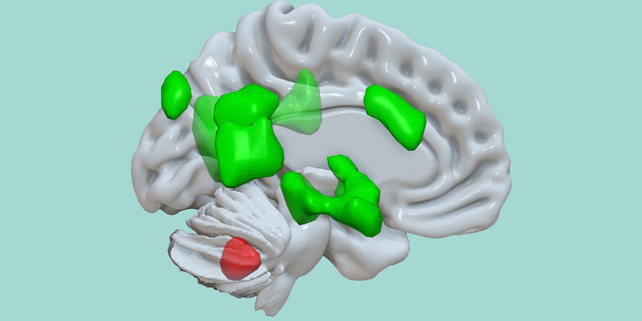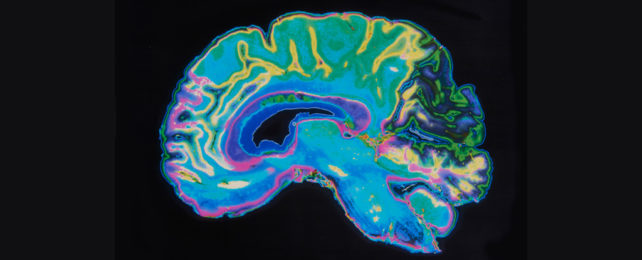Given the complexity of the human body, it's no surprise that we're still making new discoveries about the different parts we're made up of – and scientists have just made a new discovery about the cerebellum at the back of the brain.
Already known as being important for properly controlling our movements, it now appears that this brain region also has a key role to play when it comes to remembering positive and negative emotional experiences.
These types of emotional experiences are particularly well remembered by the brain, not least because it helps the survival of our species to be able to remember times when we were in danger and times when we prospered.
The amygdala and hippocampus are the brain regions thought to be most responsible for consolidating these emotional memories, but as the cerebellum is already linked to fear conditioning, the researchers behind the latest study wanted to see if it had a part to play in logging emotional memories too.
"The aim of the present study was to investigate whether the cerebellum and cerebellar–cerebral connections are involved in the phenomenon of superior episodic memory for emotionally arousing visual information," write the researchers in their published paper.
Through brain scans of 1,418 individuals taken through functional magnetic resonance imaging (fMRI) scans as they viewed emotional – some positive, some negative – and neutral images, the team was able to establish that the cerebellum was indeed involved.
The participants in the study remembered positive and negative images much better than the neutral ones, and this enhanced storage capability was linked to times when the cerebellum was more active.
What's more, the researchers also observed a greater level of communication between the cerebellum and the cerebrum, the largest part of the brain. The cerebellum was receiving information from the anterior cingulate cortex (a region key to perceiving and evaluating feelings); it was also relaying information to the amygdala and the hippocampus.

"These results indicate that the cerebellum is an integral component of a network that is responsible for the improved storage of emotional information," says neuroscientist Dominique de Quervain from the University of Basel in Switzerland.
As with any new findings about the neural circuitry inside our heads, these findings could be helpful in showing us how to repair that circuitry when something goes wrong – when memories aren't stored correctly, or if they are perhaps imprinted all too clearly on our minds.
When painful or fearful experiences are too easily brought to mind, for example, that can lead to mental health issues. Rather than acting for our benefit, it actually has a negative impact, and this is something that the new research could eventually be useful with.
"These findings expand knowledge on the role of the cerebellum in complex cognitive and emotional processes and may be relevant for the understanding of psychiatric disorders with aberrant emotional circuitry, such as post-traumatic stress disorder or autism spectrum disorder," write the researchers.
The research has been published in PNAS.
